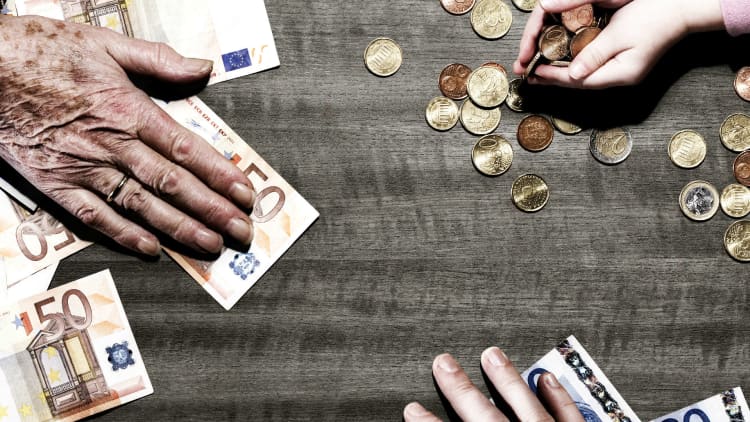The gap between rich and poor has increased in almost every region of the world over the last four decades, according to a report published Thursday.
A global perception that the rich are getting richer and the poor are getting poor has triggered calls for a crackdown on offshore tax havens and moved the issue of inequality up the political agenda.
Authors of the World Inequality Report said that unless governments took coordinated action to increase taxes and prevent tax avoidance then the problem would continue to deteriorate.
Overseen by French economist Thomas Piketty, the report drew on the work of more than 100 researchers in over 70 different countries. It found that since 1980, the top 0.1 percent of wealth owners, about 7 million people, captured as much of the world's growth as the bottom half of the adult population, around 3.8 billion people.
"Conversely, income growth has been sluggish or even nil for the population between the global bottom 50 percent and top 1 percent," the report said.
'Extreme levels' of inequality set to worsen
The report found inequality had skyrocketed to "extreme levels" despite many countries sharing similar levels of development. This was evidence of the "important roles national policies and institutions play in shaping inequality."
The economists said wealth inequality had become "extreme" in the U.S. and Russia. Over the last four decades, the U.S.'s richest 1 percent accounted for 39 percent of the nation's wealth, according to data published in 2014 — the most recent available. Most of that increase was due to the rise of the top 0.1 percent of wealth owners, the report said.
"The global top 1 percent income share could increase from nearly 20 percent today to more than 24 percent by 2050," the report said, before adding: "In which case, the global bottom 50 percent share could fall from 10 percent to less than 9 percent."
In January, the World Economic Forum (WEF) found rising income inequality and the polarization of sectors in societies ranked among key underlying trends likely to shape the world over the next decade. The WEF's global risks report also said the widening gap between rich and poor was behind U.S. President Donald Trump's election victory and the U.K.'s Brexit vote.
The World Inequality Report also estimated about 10 percent of the world's wealth was currently held in tax havens.



